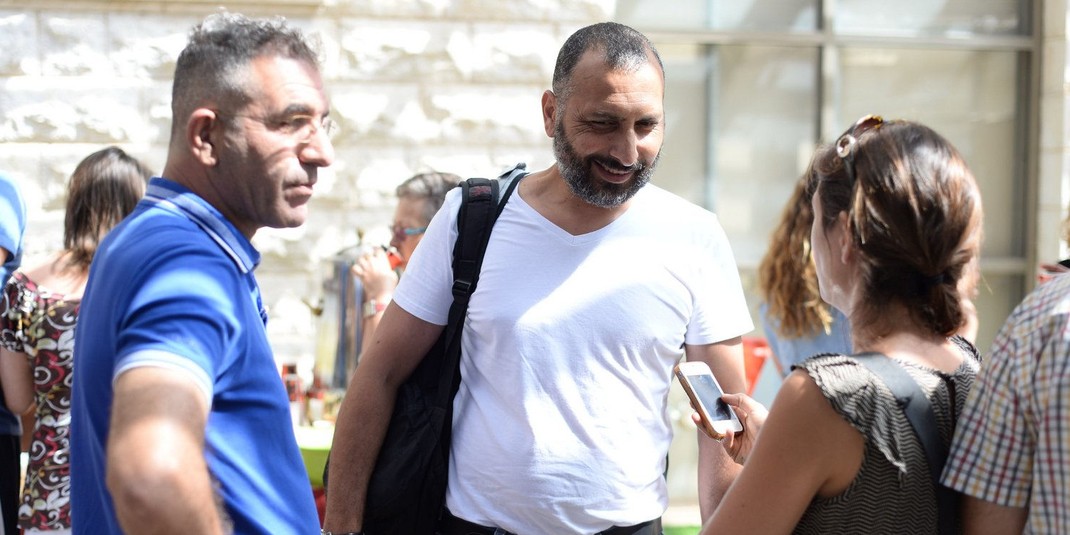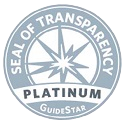Meet Mohamad Marzouk, Director of Hand in Hand's Community Network

Mohamad is the Community Department Director and one of the founders of the Hand in Hand Wadi Ara School. Below is his story and his famiy’s story, in his own words:
I grew up in the village of Aara, an Arab village in Wadi Ara, in the center of Israel. Both my parents’ families were farmers, and my father grew up helping his father in the fields. During the war of 1948 some of my family were kicked out, losing everything and becoming refugees in Jenin, Tul Karem and Jordan. Other members of my family were able to stay in what became Israel. They had to rebuild their lives. After the war my father began working in construction. He worked in Jaffa. At the time Arabs in Israel still lived under military rule and he had to ask for permission to leave our village and travel to Jaffa. He would stay there for the whole week and then come home. After the war of 1948 my parents focused only on surviving from day to day. They worked hard in order to create decent conditions for their children and to try to improve their lives in the new State. Their story is like many of the Arab Palestinian families who remained in Israel after the war of 1948.

My parents had always taught me the values of fairness and social justice. I realized there was definitely the possibility of a different reality for all of us. I began to work both to improve conditions within the Arab community and also to improve relations between Jews and Arabs, and between Israelis and Palestinians.
I have 3 children: Said, May, and Salma. When my oldest, Said, was almost 5 years old, my wife and I had to make a choice: Where should we send him to school? The school system in Israel is tracked. There is an Arabic language and a Hebrew language track. We had to choose: Should Said go to an Arab school in our town, or to a Jewish school outside of our town? Both choices presented a high price that we did not want to pay. We could not decide.
It was the year 2000. The second Intifida was taking place. Relations between Jews and Arabs were in crisis. I joined a group of 10-12 activists – men and women, Jews and Arabs – who came together to think how we could change this situation of fear and violence between our two communities. We wanted to build something which would bring Jews and Arabs together on a daily basis, and develop deep and strong relationships between the two sides. We decided that the answer was a school – a joint Jewish-Arab school for our children, with social and cultural community activities for the adults. And so we started a new Hand in Hand school in Wadi Ara. We called it Bridge Over the Wadi – Jiser ala al wadi in Arabic – or Gesher al ha’wadi in Hebrew — because we were creating a bridge between the two communities. The school now has 260 kids who come from cities throughout the area of Wadi Ara.
Three years ago Hand in Hand was still just three schools – one in Jerusalem, one in the Galilee and one in Wadi Ara – bringing Jews and Arabs together on a daily basis to put an idea of equality and inclusion into practice. It was good. But it was not enough. We realized that to have a broader impact on Jewish-Arab relations in Israel we needed to do two things: 1) have more schools throughout the country so that more Arabs and Jews can take part in integrated equal education; 2) work at the adult community level. Adults must lead the way. We cannot put the burden of what we adults have failed to do on the shoulders of our children. Each school needs a strong adult community surrounding and supporting it, and impacting our surrounding society. The communities must include fun social activities – sports, cultural events, holiday celebrations; and also activities dealing with social issues – language and text study, dialogue groups and social action to respond to events around us. They must be connected to each other and part of something bigger than themselves. Because when a community acts together – in an ongoing, organized and determined way, guided by basic human values of mutual respect and acceptance – we can create a different reality. And so we did two things: 1) We built communities around our existing three schools in Jerusalem, the Galilee and Wadi Ara; 2) We established new communities in Haifa and in Tel Aviv-Jaffa, which then opened new schools.
Our new schools are growing quickly, and have long waiting lists. This year we started a new shared community for the Arab and Jewish cities of Tira and Kfar Saba, and in September 2015 we opened a new school with them! And now we are deciding where the next new community will be.









